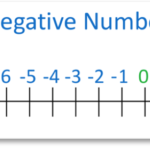Presentism and Infinite History
by Jimmy Akin
Filed under The Existence of God

“In the beginning, God created the heavens and the earth.” While the world definitely had a beginning, there’s a question of whether we can prove this by reason alone (i.e., by philosophical arguments).
Defenders of the Kalaam cosmological argument often use an argument like this one, which is found in William Lane Craig’s book Reasonable Faith:
1) An actually infinite number of things cannot exist.
2) A beginningless series of events in time entails an actually infinite number of things.
3) Therefore, a beginningless series of events in time cannot exist.
I have a problem with the first premise, but that’s a topic for another time. Here I’d like to look at Craig’s second premise.
Is it true that a beginningless series of events entails an actually infinite number of things?
At first glance, the answer would seem to be yes, but the reality is more complex.
The Nature of Time
The answer depends on your view of time. Here we need to consider two major theories of time, which are known as eternalism and presentism.
Eternalism holds that all of time exists. The past, the present, and the future are all real from the ultimate perspective—that is, from the eternal perspective outside of time. We may only experience history one bit at a time, but from the “eternal now” that God dwells in, all moments of time are equally real.
Presentism (as we will be using the term) holds that, from the ultimate perspective, the only time that exists is right now—the present. The past used to be real, but it is no longer. And the future will exist, but it does not yet. Since neither the past nor the future are real, they do not exist in any sense of the word. If you asked God—from his ultimate perspective—“What is real in the created order?” he would answer, “Only the present.”
The Eternalist Option
Supposing that eternalism is true, Craig’s second premise would be true. From the eternal perspective outside of time, God would see an infinite series of past events laid out before him.
Or, if you wish to avoid the question of how God’s knowledge works then, as the Creator, God would be causing that infinite series of past events to exist.
They would all be equally real—equally actual—from his perspective, and—since they have no beginning—they would be infinite. Being both actual and infinite, the events of a beginningless history would represent an actual infinity. Thus, the second premise would be true.
But for a classical Christian theist, there would be a problem, because Christianity teaches that God will give people endless life. While human beings may come into existence at the moment of their conception, they will never pass out of existence.
Therefore, humans have an endless future. And that future also will be equally real to God.
From his eternal perspective outside of time, God sees and creates all the moments of our endless future. They are both real—actual—from his perspective, and they are infinite in number. Being both actual and infinite, the moments of our future also would be an actual infinity.
From the viewpoint of a classical Christian theist, eternalism implies the existence of an actual infinity of future moments, giving such theists reason to challenge Craig’s first premise (that an actual infinity can’t exist).
However, this post is only examining his second premise, so let’s consider the other option we need to look at.
The Presentist Option
If only the present exists, is it true that a beginningless series of events in time entails an actually infinite number of things?
No. At least not an actual infinity of real things.
The reason is that, on the presentist view, only one moment of time exists. No past moments exist, and no future moments exist.
It doesn’t matter how many events took place in the past, because those events are no longer real. As soon as a new moment arrived, all the events taking place in the previous moment evaporated and are no longer actual.
Therefore, it doesn’t matter how many past events there have been—it could be a finite number or an infinite number—because they have all ceased to be actual. The only actual events are those occurring in the present.
So, if presentism is true, the second premise of Craig’s argument is false if applied to concrete, real things like events. A beginningless series of events in time does not entail an actually infinite number of such things because those things are no longer actual.
For a collection of things to be actually infinite, they all have to be actual from some perspective. On eternalism, that can happen, because all the moments of time are actual from the eternal perspective outside of time.
But it can’t happen on presentism, because this view holds that, from the ultimate perspective, only one moment is real, and one is a finite number. This view entails that no actual infinity of moments in time exists, because only one moment of time is actual.
This is why Aristotle could believe that the world did have an infinite history. Even though he thought an actually infinite number of things couldn’t exist at the same time, history didn’t present that problem, because one moment passed out of existence when another came into it, so the total number of moments was always finite.
The Counting Argument
In the Blackwell Companion to Natural Theology, Craig and coauthor James Sinclair respond to this issue with two lines of thought.
The first is based on counting, and their reasoning (omitting examples for brevity) goes like this:
[W]e may take it as a datum that the presentist can accurately count things that have existed but no longer exist. . . .
The nonexistence of such things or events is no hindrance to their being enumerated. . . .
So in a beginningless series of past events of equal duration, the number of past events must be infinite, for it is larger than any natural number. . . .
[I]f we consider all the events in an infinite temporal regress of events, they constitute an actual infinite.
It’s true that a presentist can count things that have existed but no longer exist (e.g., the number of days that have elapsed so far this year)—and their nonexistence doesn’t prevent this counting (just look at a calendar!).
The problem comes in the third statement, because it can be understood in more than one way.
In terms of what is real on the presentist view, the number of past events is not infinite, because no past events exist. That’s a key point of presentism.
If you want to talk about an infinite number of past events, you have to shift from speaking of events that do exist to those that have existed, and those aren’t the same thing.
Yes, on presentism, we could speak of an infinite collection of events that were real but aren’t anymore. And that’s the point: They aren’t real.
This points to a second way of reading the statement when Craig and Sinclair speak of “the number of past events.”
If we are talking about the number of events, then we’re no longer talking about the events themselves. Instead, we’re talking about a number, which raises a question.
What Are Numbers?
Mathematicians and philosophers have a variety of views about what numbers are. Some classify them as “abstract objects” that exist independent of the mind. Others think of them as mental constructs of some kind. There are many variations on these views.
Whatever the case may be, Craig doesn’t see infinite numbers themselves being a problem.
In his talks and writings, he has frequently said that he doesn’t have a problem with the mathematics of infinity—that modern mathematical concepts dealing with the infinite are fine and useful as concepts. Thus, the infinite set of natural numbers (0, 1, 2, 3 . . . ) is a useful concept.
Craig doesn’t reject the idea that the set of natural numbers is actually infinite. It’s just not the kind of actual infinity that causes a problem for him because numbers aren’t concrete objects in the real world.
So, actual infinities of the numerical order are fine, in which case it’s fine if the number of past events is actually infinite. It’s an actual infinity of events themselves that he says can’t be part of the real world.
And on presentism, they’re not. Past events would have to be understood in some other way. They might be abstract objects, like many mathematicians hold numbers to be. Or they might be purely mental concepts at this point, as others regard numbers.
Whatever is the case, on presentism they do not exist in the real world. And so, whatever kind of infinity a beginningless universe would involve, it doesn’t violate the principle that—while actual infinities may exist in an abstract way, as in mathematics—they don’t exist in the real world.
Back to the Future
There is another way of illustrating the problem with the argument from counting, and it involves considering the number of future events.
If the universe can’t have a beginningless past because an infinite set of non-real past events can’t exist, then we also can’t have an endless future, because that entails an infinite set of non-real future events.
The argument simply involves shifting from events that used to be real to those that will be real.
If God gives people endless life, then the number of days that we will experience in the future is infinite. As the hymn says about heaven,
When we’ve been there ten thousand years,
Bright shining as the sun,
We’ve no less days to sing God’s praise,
Than when we first begun.
As Craig and Sinclair acknowledge:
It might rightly be pointed out that on presentism there are no future events and so no series of future events. Therefore, the number of future events is simply zero. . . . [O]n presentism, the past is as unreal as the future and, therefore, the number of past events could, with equal justification, be said to be zero. It might be said that at least there have been past events, and so they can be numbered. But by the same token there will be future events, so why can they not be numbered? Accordingly, one might be tempted to say that in an endless future there will be an actually infinite number of events, just as in a beginningless past there have been an actually infinite number of events.
So, why should an infinite number of future events be considered more permissible for a presentist than an infinite number of past ones?
Possible vs. Actual Infinity
Craig and Sinclair’s response involves the difference between an actual infinity (where an unlimited number of elements exist simultaneously) and a potential infinity (where an unlimited number of elements don’t exist simultaneously). They write:
[T]here never will be an actually infinite number of [future] events since it is impossible to count to infinity. The only sense in which there will be an infinite number of events is that the series of events will go toward infinity as a limit. But that is the concept of a potential infinite, not an actual infinite. Here the objectivity of temporal becoming makes itself felt. For as a result of the arrow of time, the series of events later than any arbitrarily selected past event is properly to be regarded as potentially infinite, that is to say, finite but indefinitely increasing toward infinity as a limit.
This reasoning is mistaken. It is false to say that “the series of events later than any arbitrarily selected past event is . . . finite but indefinitely increasing toward infinity as a limit.”
No. If you arbitrarily select any event in time and consider the sequence of later events, they do not “indefinitely increase toward infinity.” They are always infinite.
Consider January 1, 1900. On the Christian view, how many days of endless life will there be after that? An infinite number.
Consider January 1, 2000. How many days are to come? Again, an infinite number.
Consider January 1, 2100. How many days follow? Still an infinite number.
As the hymn says, “We’ve no less days to sing God’s praise than when we first begun!”
What Craig and Sinclair are thinking of is the fact that, if you pick a date and go any arbitrary distance into the future, your destination will still be a finite number of days from your starting point.
Thus, the number of days that has elapsed between the start and finish of your journey grows toward infinity but never gets there, making this span of days a potential rather than actual infinity.
But it does not follow—and is simply wrong—that the complete set of future days is only potentially infinite. To show this, just give each day a number: Today is 0, tomorrow is 1, the next day is 2, and so on. We can thus map the set of future days onto the set of natural numbers, which is actually rather than potentially infinite.
Take any day you like, and on the Christian view the quantity of days that will be after it is identical to the quantity of natural numbers.
The quantity of days that will be—like the quantity of natural numbers—does not grow. This quantity just is.
Unless you say—contrary to the teaching of the Christian faith—that the number of future days is finite and God won’t give us endless life, then there is an actual infinity of future days.
And if a presentist wants to affirm an actual infinity of currently-not-real days that will be, he must allow the possibility of an actual infinity of currently-not-real days that have been.
Conclusion
In summary, Craig’s second premise was:
2) A beginningless series of events in time entails an actually infinite number of things.
Whether this is true will depend on one’s view of time and the status of non-real things.
On eternalism, a beginningless series of events in time would involve an actually infinite number of things, for all these moments exist from God’s perspective outside of time. But so would the actually infinite number of future days that God promises us, giving the eternalist reason to reject the idea that an actual infinity cannot exist in the real world.
On presentism, a beginningless series of events in time would not involve an actual infinity of events existing in the real world, because presentism holds that the past does not exist.
Such a series of events might result in an actual infinity of (past) non-existent days, but so would the actual infinity of (future) non-existent days. And if a Christian allows one set of non-existent days, the other must be allowed as well.
The fact that the past days are countable is irrelevant, because so are the future days.
And it is simply false to say that the days that will be are only potentially infinite. They’re not. Right now, the number of days that will be is actually infinite, the same way the set of natural numbers is actually infinite.
Based on what we’ve seen here, presentism does not exclude an infinite past any more than it does an infinite future.
Related Posts
Note: Our goal is to cultivate serious and respectful dialogue. While it's OK to disagree—even encouraged!—any snarky, offensive, or off-topic comments will be deleted. Before commenting please read the Commenting Rules and Tips. If you're having trouble commenting, read the Commenting Instructions.












